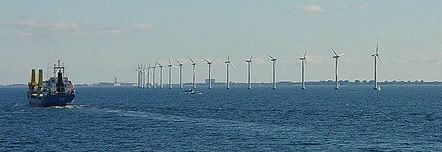Late last week, Denmark approved plans to build a massive island in the North Sea for wind power generation. Its 10GW capacity touted by Danish climate minister Dan Jørgensen is equivalent to five coal-fired power stations.
The Danish state is taking a 51% stake in the project while also seeking funds and drawing on the expertise of private partners. Construction is expected to cost somewhere in the vicinity of US $33bn.
Jorgensen called the 51% stake a “perfect compromise” that would bring in private expertise and make it “a very lucrative business.”
The approach serves to further underline the absurdity of dichotomy of economy/jobs versus environmental priorities, which has long defined climate debate in Australian politics.
“This is huge for Denmark,” Jørgensen said. “We are taking a step into the next era of offshore wind. We were the first country in 1991 to build an offshore wind farm, and now we are taking the next step.”
“The 10GW when this is finalised will be producing far, far more clean energy than we can use as a country, so this is part of a strategy to help other countries meet their targets.”

Denmark’s own climate target at present is a 70% reduction by 2030. Meanwhile, as part of meeting net zero emissions, the European Union intends to expand off-shore wind power generation 25-fold.
The wind-power island is still dependent upon passing environmental impact assessments relating to its impact on the North Sea seabed. It will also be dependent upon connections to Germany and the Low Countries, given that the projected power generation is far more than Denmark itself uses or needs.
When the concept was first floated early in 2020, Denmark’s finance minister said, “[D]evelopment must be both green and economically wise. We must have the courage to change as we build. Therefore, the government today presents a plan that creates the foundation for thousands of green jobs.
“[This is] the first of many steps towards a sustainable future in which we secure Denmark and Danish companies the green driving position.” Australians, unfortunately, can only dream of this kind of leadership at home at present.
If you enjoyed this article, you can follow Christian on Twitter.